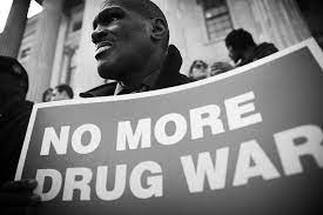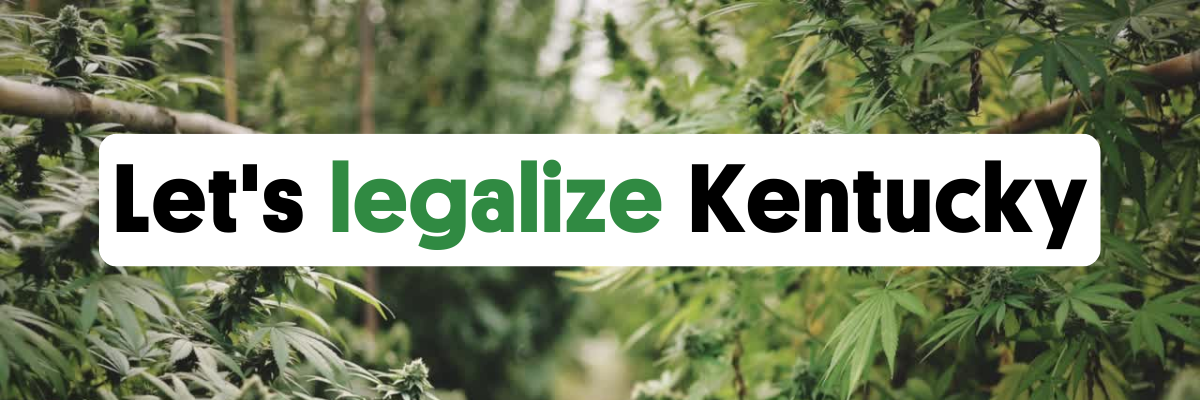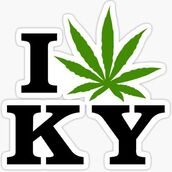The MORE Act: What it does and what it could mean for the Bluegrass State - Part II: The Foundation6/25/2021 As I alluded to in part one of this series, the Marijuana Opportunity Reinvestment and Expungement (MORE) Act contains a number of provisions and programs essential for the cannabis industry to thrive on a national scale. Additionally, the legislation includes funding and oversight for said programs. More information on those programs is forthcoming, but before addressing the framework, I feel it is necessary to touch upon the legislation’s foundation. First and foremost, the MORE Act removes cannabis from the Drug Enforcement Agency’s (DEA) list of controlled substances which, in and of itself, has the potential to benefit Kentucky citizens in a variety of ways.
At the top of the list of the MORE Act’s legalization benefits are those within the judicial system. Under the proposed new cannabis policy, manufacture, distribution, use, and possession of cannabis would cease to be a crime at the federal level. Furthermore, this change to current policy is retroactive, establishing a process for expungement of prior convictions as well as sentencing reviews for those currently incarcerated due to the unjust policy of prohibition.
0 Comments
The MORE Act: What it Does and What it Could Mean for the Bluegrass State - Part I: The Overview6/19/2021  In December 2020, the Marijuana Opportunity Reinvestment and Expungement (MORE) Act became first major cannabis reform to be passed in the US at the federal level when it was approved by the House of Representatives 228-164. Unfortunately, under the leadership of Mitch McConnell, it was never taken up by the Senate. On May 28 of this year, it was reintroduced by House Judiciary Chairman and sponsor of the bill, Jerry Nadler (D-NY-10). Due to a voter-imposed change in management, it seems likely that the legislation will make the Senate floor during this session. While proponents of the bill still face an uphill battle due to the continued orthodoxy of partisan obstructionism, the fact that nearly 70% of Americans support legalization provides a modicum of hope that the Senate can find a way to overcome the gridlock has become the defining characteristic of the American legislative process. If ever there was an issue with more potential for coalition building, I haven’t seen it in my lifetime. "We knew we couldn't make it illegal to be either against the war or black, but by getting the public to associate the hippies with marijuana and blacks with heroin, and then criminalizing both heavily…[w]e could…vilify them night after night on the evening news. Did we know we were lying about the drugs? Of course we did." --Nixon advisor John Ehrlichman It was on June 17, 1971 that Richard Nixon officially declared war, a War on Drugs, ostensibly something we could and should all be able to get behind. History has shown, however, that reality doesn’t jive with the huckster’s pitch we were spoon fed. The war, in fact, was never on drugs. The war was, and is, a racist, politically motivated strategy to silence and disenfranchise dissenters by circumventing laws that protect their civil rights. Add in a dash of class warfare and a boatload of funding during the Reagan regime and what you have is a cynical assault on the very foundations of the American Experiment that has raged for half a century.
by Jason ConderStaff Writer Amazon’s recent announcement that the company will be scaling back its drug screening policy is making news and making waves nationally. Being one of the most valuable brands on the planet and the second largest employer in the US gives Amazon a tremendous amount of leverage in the fight for fairer and more inclusive hiring practices. Their position in the market affords them the ability to influence not only public policy on a national scale, but also the business practices within the private sector. At face value, Amazon’s announcement is a big step toward eliminating what amounts to an unnecessary and discriminatory barrier to employment and opportunity.
Amazon’s new policy has the potential to greatly affect us here in the Bluegrass State. According to the Cabinet for Economic Development, as of 2017, Amazon ranked “…fifth in the state with 7,232 full-time jobs in its list of Kentucky’s largest manufacturing, service and technology firms...” Already one of the largest employers in the state, Amazon is continually expanding. A new fulfillment center in Fayette County, for example, is currently in the works. The retail giant’s relaxation of their pre-employment screening policy will expand the opportunity to earn above average wages to Kentuckians who would have previously been needlessly excluded from the labor pool. |
Cannabis Business
|
ABOUT • SHOP • DIRECTORY • JOIN • CONTACT US






 RSS Feed
RSS Feed